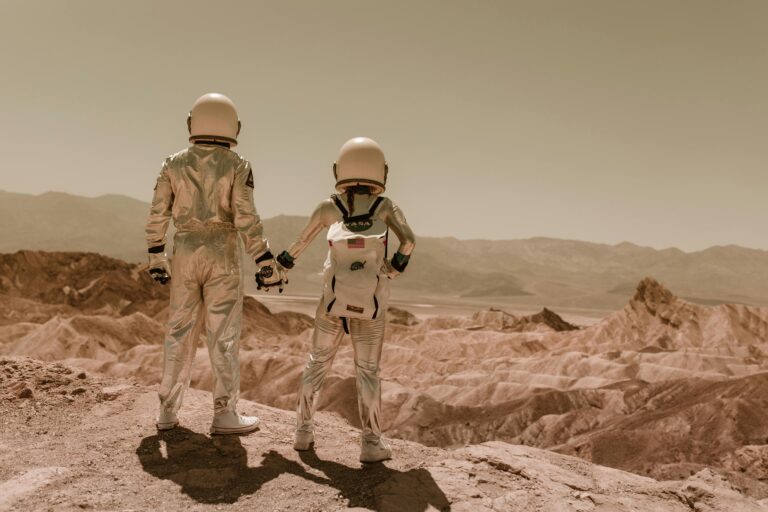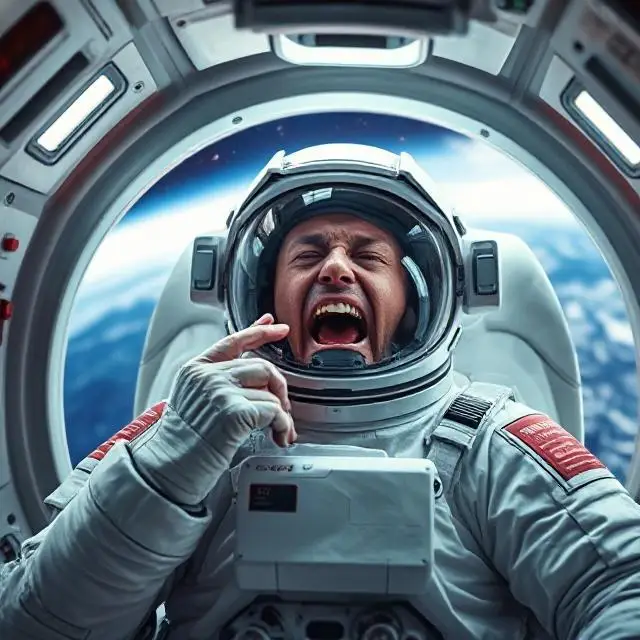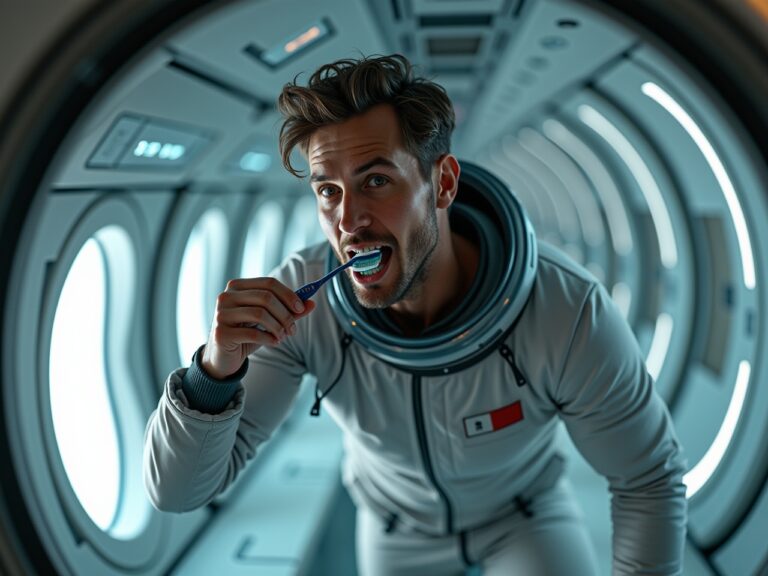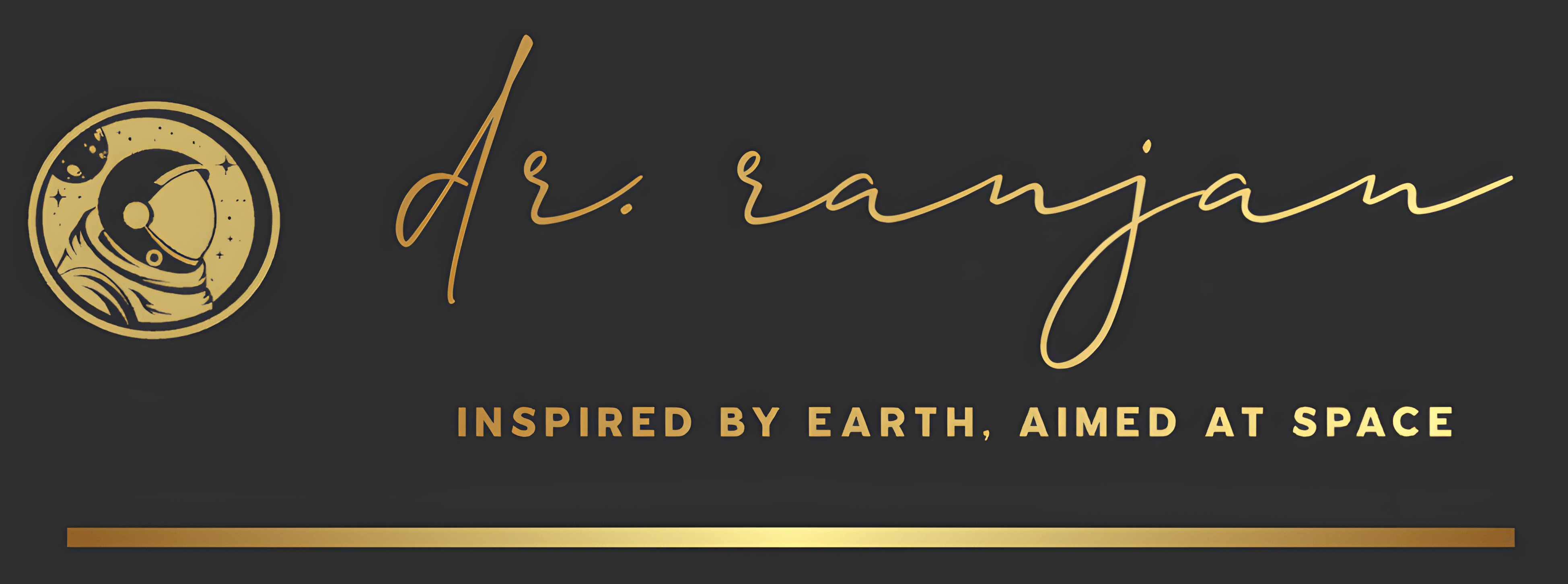Oral Health in Outer Space: The Next Frontier for Mars Missions and Space Colonies
Martian Smiles Lab Editorial Team
New Delhi, UPDATED May 21, 2025 11:55 pm
Oral health in space is becoming a critical topic as humanity prepares for long-term missions to Mars and beyond. Maintaining healthy teeth and gums in microgravity is more complex than we imagined.

Life on Mars isn’t just about the red dust and breathtaking views — it’s about survival in a place with no breathable oxygen, extreme cold, and unfiltered solar radiation.
These hostile environmental factors could profoundly affect human physiology, including our salivary glands, bone density, immune response, and microbial balance — all vital in maintaining oral health.
The atmosphere on Mars is mostly carbon dioxide w/ no breathable oxygen. Not to mention the landscape is freezing, w/ no protection from the Sun's radiation. How will future astronauts survive? Mars 2020 will test the technology to make it possible. More: https://t.co/ory8HvtnC0 pic.twitter.com/CjHyLsZGBn
— NASA (@NASA) June 14, 2019
As space agencies like NASA, ISRO, and ESA prepare for long-term missions to the Moon and Mars, a new set of health challenges is emerging—especially for astronauts’ teeth and gums. While we often marvel at the physical toll of space travel on muscles and bones, few talk about how outer space impacts oral health.
Veteran astronauts like Sunita Williams, Butch Wilmore, and Chris Hadfield have shared fascinating stories about brushing their teeth aboard the International Space Station (ISS). In microgravity, even a simple task like spitting out toothpaste becomes a complex maneuver. Most astronauts end up either swallowing the residue or wiping it off—a far cry from our typical morning routine on Earth.
So, what happens to your mouth when you live in space?
Life on Mars (and ISS): How Space Affects Oral Health
The environment in space—and eventually on planets like Mars—is vastly different from Earth. These changes can disrupt the human body in unexpected ways, including:
1. Microgravity Alters Saliva Flow
Saliva plays a vital role in protecting our teeth and neutralizing acids. But in microgravity, saliva doesn’t behave the same way. It tends to pool in the mouth or back of the throat, reducing its protective benefits. This can lead to dry mouth, increasing the risk of:
- Tooth decay
- Gum infections
- Bad breath

Learn more about dry mouth and its effects on oral health here.
2. Nutritional Deficiencies
Space diets often lack fresh fruits and vegetables, which are rich in essential vitamins like Vitamin C and Calcium. These nutrients are crucial for gum health and bone density, especially in the jaw. Over time, astronauts may face:
- Gum bleeding
- Loose teeth
- Delayed healing
To address this nutritional deficiency challenge, NASA is now exploring innovative solutions like growing food directly on Mars. The concept involves integrating greenhouses into astronaut habitats, ensuring a fresh supply of vegetables. This step forward not only improves overall well-being but also helps maintain oral resilience during interplanetary missions.
Sustaining life on Mars may require the #Artemis Team to produce their own food in greenhouses as part of their surface habitat. Check out this concept art from our Advanced Concept Laboratory. It shows one way that we might be able to grow food on Mars. https://t.co/IdJPqtCmEz pic.twitter.com/gYFABxzjrO
— NASA Langley Research Center (@NASA_Langley) December 27, 2020
3. Weakened Bones, Including the Jaw
Studies have shown that astronauts lose up to 1-2% of their bone mass per month in space. While most focus on hips and spine, the jawbone also weakens—putting astronauts at greater risk for tooth loss or injury during space missions.
4. Difficulty in Dental Treatment
There’s no dental chair in space. Treating a cavity or gum abscess in zero gravity can be a nightmare without the right equipment. In long-duration missions to Mars, even basic dental emergencies could turn life-threatening if left unaddressed.
Astronauts Brushing in Space: Not As Simple As It Sounds
Sunita Williams, in above NASA video, demonstrated how brushing in space involves minimal water and a towel. She brushed, wiped the foam, and swallowed the rest—because there’s no spitting in space.
While it’s efficient, it’s far from ideal. Swallowing old toothpaste isn’t exactly hygienic or good for gut health. And water usage must be minimal and recycled—limiting proper rinsing.
Envisioning the Future: Smiles on Mars

As humanity sets its sights on building colonies on Mars, Dr. Bibhakar Ranjan, an international dental surgeon and oral health advocate, envisions a world where astronauts won’t have to compromise their dental hygiene.
In his ongoing research, Dr. Ranjan is exploring the development of oral care tools that:
- Work without gravity
- Use no rinse water
- Neutralize bacteria safely
- Can be operated independently in emergencies
While still in development, these ideas could become standard for space dentists of the future—ensuring no cavity or gum disease threatens a Mars mission.
Why This Matters to Everyone
Space research doesn’t just help astronauts. It often leads to new medical technologies used on Earth. Innovations in space oral care might one day improve dental treatments for elderly patients, those with disabilities, or people in remote areas with limited water access.
Final Thoughts
Mars might be the next home for humans—but our mouths still carry the same needs. As we plan the next great leap, let’s not forget the small but mighty role of oral health in mission success.
Healthy astronauts = Successful missions.
Explore more at Martian Smiles Lab Newsroom, where we decode modern dental trends, celebrity transformations, and the future of health—on Earth and beyond.
Official Address
- Bonn, Germany
- Victoria, Mahe Island, Seychelles
- New Delhi, India.
- info@drbibhakarranjan.com
- +49 15560 936114
Copyright 2025 Dr Bibhakar Ranjan – All Rights Reserved
